Mezzofantis Gift
ALSO BY MICHAEL ERARD
Um... :
Slips, Stumbles, and Verbal Blunders,
and What They Mean
Mezzofantis Gift
The Search for the Worlds Most
Extraordinary Language Learners
MICHAEL ERARD

DUCKWORTH OVERLOOK
London and New York
First published in the UK in 2013 by
Duckworth Overlook
LONDON
30 Calvin Street, London E1 6NW
T: 020 7490 7300
E:
www.ducknet.co.uk
For bulk and special sales, please contact
or write to us at the address above
2012 by Michael Erard
First published in the US in 2012 by
Free Press, a division of Simon and Schuster, Inc.
All rights reserved. No part of this publication may be reproduced, stored in a retrieval system, or transmitted, in any form or by any means, electronic, mechanical, photocopying, recording or otherwise, without the prior permission of the publisher.
The right of Michael Erard to be identified as the Author of the Work has been asserted by him in accordance with the Copyright, Designs and Patents Act 1988.
A catalogue record for this book is available from the British Library
ISBNs
Paperback: 978-0-7156-4568-0
Kindle: 978-0-7156-4701-1
ePub: 978-0-7156-4702-8
Library PDF: 978-0-7156-4703-5
Printed and bound in the UK by
CPI Group (UK)Ltd, Croydon, CR0 4YY
For Misty
Contents
Catch a young swallow.
Roast her in honey.
Eat her up.
Then you will understand all languages.
Folk magic incantation
When we wonder, we do not yet know
if we love or hate the object at which
we are marveling; we do not yet know
if we should embrace it or flee from it.
Stephen Greenblatt,
Marvelous Possessions
Mezzofantis Gift
Part 1
QUESTION:
Into the Cardinals Labyrinth
Introduction
 o sea-going travelers of 1803, pirates in the Mediterranean posed a terrifyingly reliable threat. So when an Italian priest, Felix Caronni, set out from the Sicilian port of Palermo, it was conceivable that neither he nor the ships cargo of oranges would ever see their destination. Indeed, Caronnis boat was captured, and for a year he was jailed on the northern coast of Africa, headed for certain slavery, until French diplomats secured his release.
o sea-going travelers of 1803, pirates in the Mediterranean posed a terrifyingly reliable threat. So when an Italian priest, Felix Caronni, set out from the Sicilian port of Palermo, it was conceivable that neither he nor the ships cargo of oranges would ever see their destination. Indeed, Caronnis boat was captured, and for a year he was jailed on the northern coast of Africa, headed for certain slavery, until French diplomats secured his release.
When the priest returned to Italy, he set out to write an account of his narrow escape. Appearing in 1806, it was the first published mention of a certain professor of oriental languages at the University of Bologna who had helped caronni translate a document from Arabic. This twenty-nine-year-old professor, Giuseppe Mezzofanti, a priest and the son of a local Bolognese carpenter, was reputed to know twenty-four languages.
More than thirty years later, a group of English tourists visiting Rome sought out Mezzofanti and asked him how many languages he spoke. By then he was the Vatican librarian and would soon be elevated to cardinal. I have heard many different accounts, one tourist asked the prelate, but will you tell me yourself?
Mezzofanti hesitated. Well, if you must know, I speak forty-five languages.
Forty-five! the tourist exclaimed. How, sir, have you possibly contrived to acquire so many?
I cannot explain it, said Mezzofanti. of course God has given me this peculiar power: but if you wish to know how I preserve these languages, I can only say, that, when once I hear the meaning of a word in any language, I never forget it.
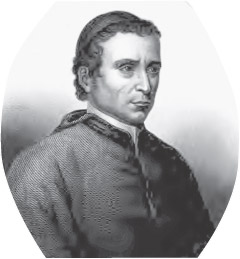
Engraving of Giuseppe Mezzofanti.
At other times, when asked how many languages he spoke, Mezzofanti liked to quip that he knew fifty languages and Bolognese. During his lifetime, he put enough of those fifty on displayamong them Arabic and Hebrew (biblical and Rabbinic), Chaldean, Coptic, Persian, Turkish, Albanian, Maltese, certainly Latin and Bolognese, but also Spanish, Portuguese, French, German, Dutch, and English, as well as Polish, Hungarian, Chinese, Syrian, Amharic, Hindustani, Gujarati, Basque, and Romanianthat he frequently appeared in rapturous accounts of visitors to Bologna and Rome. some compared him to Mithridates, the ancient Persian king who could speak the language of each of the twenty-two territories he governed. The poet Lord Byron, who once lost a multilingual cursing contest with Mezzofanti, called him a monster of languages, the Briareus of parts of speech, a walking polyglott, and more,who ought to have existed at the time of the Tower of Babel, as universal interpreter. Newspapers described him as the distinguished linguist, the most learned linguist now living, the most accomplished linguist ever seen, the greatest linguist of modern Europe. He was continually referred to as the pinnacle of human achievement with languages. A British civil servant who directed a survey of all the languages of India between 1894 and 1928 summed up the linguistic situation in the province of Assam, where eighty-one languages were spoken, by writing that Mezzofanti himself, who spoke fifty-eight languages, would have been puzzled here.
In 1820, Hungarian astronomer Baron Franz Xaver von Zach visited Mezzofanti, who addressed him in Hungarian so excellent, the surprised Baron said he felt stupefied. Then (as he wrote later), he afterwards spoke to me in German, at first in good Saxon, and then in the Austrian and Swabian dialects, with a correctness of accent that amazed me to the last degree. Mezzofanti went on to speak English in conversation with a visiting Englishman, and Russian and Polish with a visiting Russian prince. He did all of this, wrote Zach, not stuttering and stammering, but with the same volubility as if he had been speaking his mother tongue.
Despite this adoration, Mezzofanti was also the target of sarcastic barbs. Irish writer Charles Lever wrote that Mezzofanti was a most inferior man.... An old dictionary would have been to the full as companionable. Baron Bunsen, a German philologist, said that in all the countless languages which Mezzofanti spoke he never said anything. He has not five ideas, said a Roman priest quoted in a memoir. A German student who met him in the Vatican remembered, There is something about him that reminds me of a parrothe does not seem to abound in ideas.
A Hungarian woman visiting him in 1841 asked how many languages he spoke.
Not many, Mezzofanti replied. For I only speak forty or fifty.
Amazing incomprehensible faculty! the woman, Mrs. Polyxena Paget, wrote in a recollection, but not one that I should in the least be tempted to envy; for the empty unreflecting word-knowledge, and the innocently exhibited small vanity with which he was filled, reminded me rather of a monkey or a parrot, a talking machine, or a sort of organ wound up for the performance of certain tunes, than of a being endowed with reason.
Yet many others were unburdened of their skepticism when they encountered the man in the flesh. Scholars, philologists, and classicists trooped off to test or trap Mezzofanti and were, one by one, bested and charmed. In 1813, a scholar from the University of Turin, Carlo Boucheron, met Mezzofanti at the Library of Pisa, armed with hard questions about Latin. Expecting that Mezzofanti had spread himself too thin to know anything substantial about the arcana of Latins history, Boucheron had called him a mere literary charlatan.

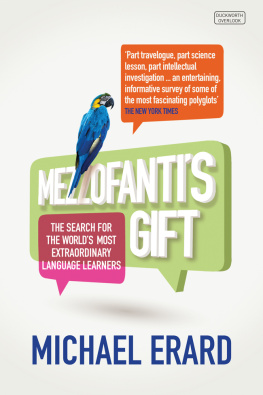
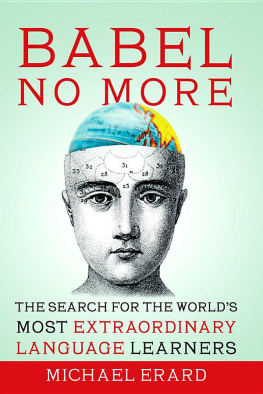



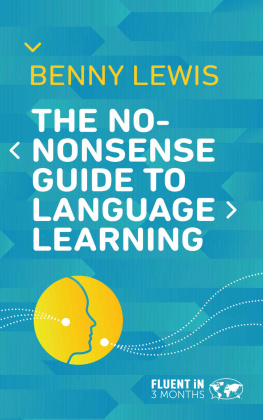

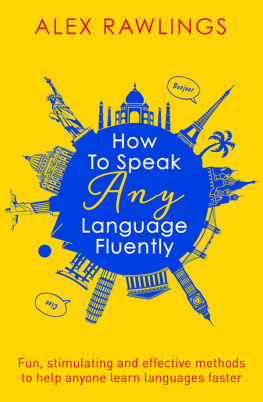




 o sea-going travelers of 1803, pirates in the Mediterranean posed a terrifyingly reliable threat. So when an Italian priest, Felix Caronni, set out from the Sicilian port of Palermo, it was conceivable that neither he nor the ships cargo of oranges would ever see their destination. Indeed, Caronnis boat was captured, and for a year he was jailed on the northern coast of Africa, headed for certain slavery, until French diplomats secured his release.
o sea-going travelers of 1803, pirates in the Mediterranean posed a terrifyingly reliable threat. So when an Italian priest, Felix Caronni, set out from the Sicilian port of Palermo, it was conceivable that neither he nor the ships cargo of oranges would ever see their destination. Indeed, Caronnis boat was captured, and for a year he was jailed on the northern coast of Africa, headed for certain slavery, until French diplomats secured his release.